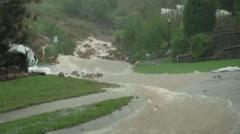South Korea's capital, Seoul, recorded its highest-ever November snowfall on Wednesday, accumulating at least 16 cm, which has led to major transport disruptions and safety concerns amidst the weather-related incidents.
Historic November Snowfall Strikes Seoul, Disrupts City Life

Historic November Snowfall Strikes Seoul, Disrupts City Life
Seoul experiences its heaviest November snowfall in over a century, impacting transport and local infrastructure.
Seoul has made history as it logged its heaviest November snowfall since official records began in 1907. On Wednesday, the South Korean capital witnessed an impressive 16 cm of snow, surpassing the previous record of 12.4 cm set back in November 1972. This considerable accumulation of snow has caused widespread disruption throughout the capital, with reports from local media indicating grounded flights, closed roads, and delayed transport services across the city.
Tragically, at least one person has died from a weather-related traffic accident near Seoul as icy conditions resulted in a surge of traffic incidents. "The heavy snowfall is a result of strong westerly winds combined with a significant temperature difference between the colder air and the sea surface," said Youn Ki-han, head of Seoul's Meteorology Forecast Division, in an interview with AFP.
As snow continued to fall throughout Wednesday night and into Thursday morning, residents experienced a stark transition from unseasonably warm autumn temperatures to a wintery landscape. Businessman Bae Joo-han expressed his surprise at the quick climate shift, noting, "Just last week, I felt that the November autumn was a bit warm, but in just one week it feels like it's turned into a winter wonderland. So I came out onto the streets today to enjoy the first snowfall of this winter."
Despite the beauty of the winter scene, the heavy snow has severely impacted flight schedules and local transport, adding to the challenges faced by residents and city officials during this exceptional weather event.





















